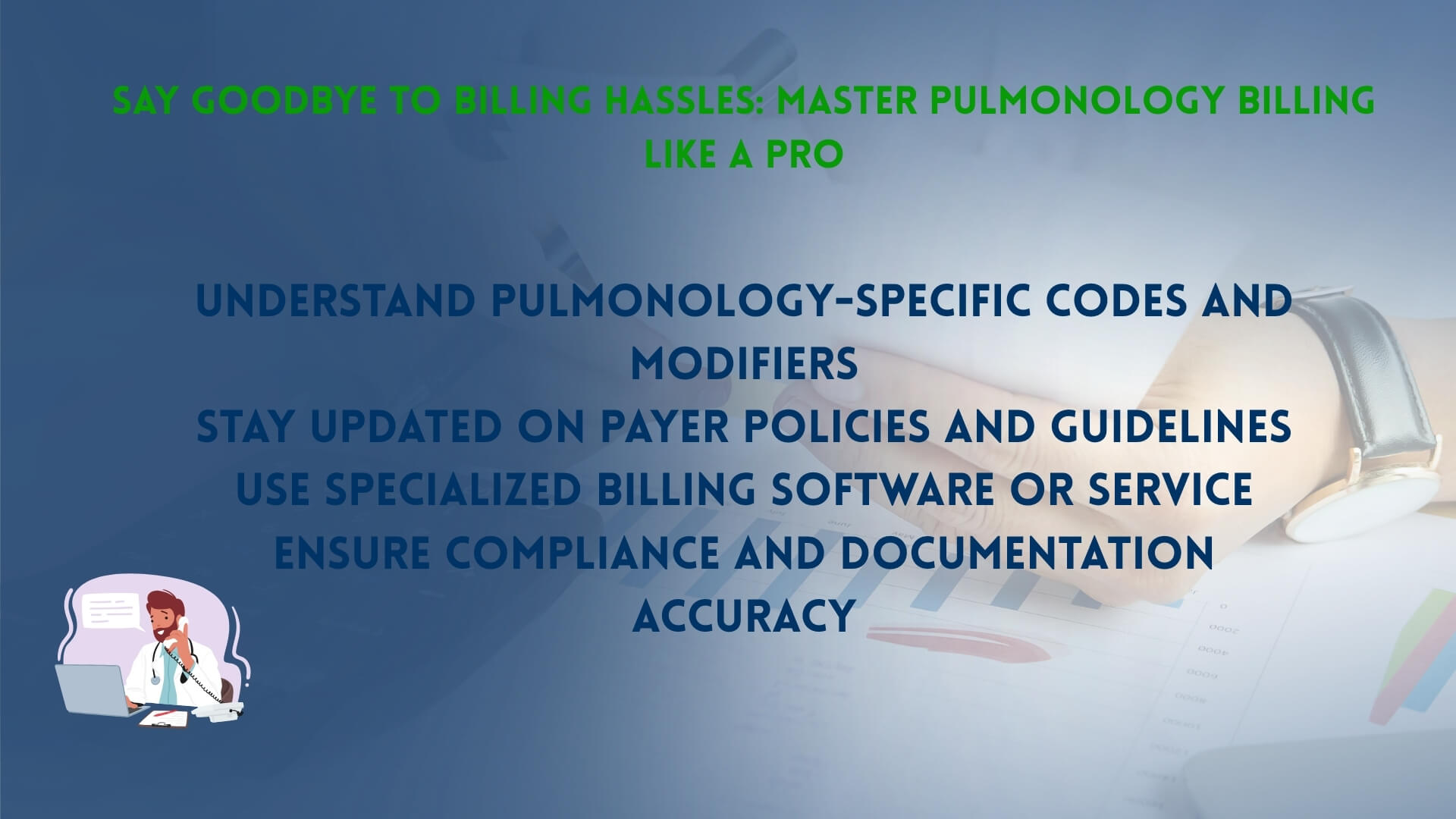Master Pulmonology Billing Like a Pro
Navigating the complexities of pulmonology billing can be daunting. With numerous codes, regulations, and documentation requirements, it's easy to make mistakes that can lead to claim denials and revenue loss. However, mastering the art of pulmonology billing doesn't have to be a headache. In this guide, we’ll cover essential strategies, tips, and best practices for simplifying your billing process and ensuring smooth reimbursement.

What is Pulmonology Billing?
Pulmonology billing is the process of coding and submitting claims for medical services provided by pulmonologists, healthcare providers specializing in diseases and conditions of the lungs and respiratory system. This includes services such as lung function tests, sleep studies, respiratory therapy, and treatments for conditions like asthma, COPD, and lung cancer. Proper billing is crucial to ensuring healthcare providers are paid correctly for their services, and it requires accurate coding and a thorough understanding of insurance policies.
Why is Pulmonology Billing Important?
Pulmonology billing plays a crucial role in the financial health of any healthcare provider. Inaccurate billing can lead to delayed or denied claims, which directly affects revenue. Moreover, understanding the right codes, documentation, and compliance requirements is essential to avoid potential penalties and ensure timely payments from insurers. By mastering the intricacies of pulmonology billing, healthcare providers can reduce administrative burdens, prevent costly errors, and focus on delivering top-quality care to their patients.
Key Tips for Effective Pulmonology Billing
- 1. Accurate Coding: The foundation of successful pulmonology billing is using the correct codes for every procedure. Make sure your billing team is familiar with the latest ICD-10, CPT, and HCPCS codes specific to pulmonology.
- 2. Verify Insurance Eligibility: Verify patient insurance eligibility before services are rendered to reduce the risk of claim denials. This ensures the patient’s plan covers the procedures you're offering.
- 3. Submit Claims on Time: Timely submission of claims is crucial. Ensure that all claims are filed promptly to avoid late submissions and the risk of automatic denials.
- 4. Use the Right Modifiers: Modifiers are essential to ensure that the claim is processed correctly. Ensure that the correct modifier is used for each specific service provided, such as for multiple procedures or add-on services.
- 5. Focus on Documentation: Detailed documentation is essential for claim approval. Ensure that all services provided are backed up by clear and concise documentation that supports the billing codes used.
The Role of Technology in Pulmonology Billing
Technology has significantly transformed pulmonology billing, making it easier to automate processes, reduce errors, and ensure compliance. Billing software and tools can streamline tasks like coding, insurance verification, claim submission, and tracking denials. By leveraging these tools, pulmonology practices can reduce manual errors, improve efficiency, and speed up the reimbursement process.
Prioritize Patient Communication
Clear communication with patients about their billing and insurance coverage is critical. Explain any out-of-pocket costs, what services are covered by insurance, and any financial assistance options available. This transparency helps avoid confusion and builds trust with your patients.
Continuous Training for Your Billing Team
The healthcare industry is constantly evolving, and so is the landscape of medical billing. It’s essential to provide regular training for your billing team to ensure they stay up to date with the latest codes, regulations, and billing procedures.
Appeal Denied Claims
Don’t accept denied claims without a fight. When a claim is denied, investigate the reasons behind it and appeal the decision if necessary. Having a systematic approach for appealing denied claims can help recover lost revenue and improve your bottom line.